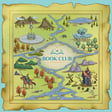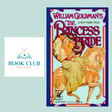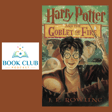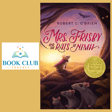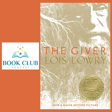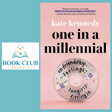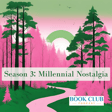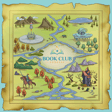
A Wrinkle in Time by Madeleine L’Engle Book Club
In this episode of the Book Club Podcast, Carly Jackson and guest Christy Lynn Horpedahl discuss Madeleine L'Engle's A Wrinkle in Time. They explore the themes of good versus evil, the importance of intelligence versus love, and the significance of Meg's faults. The conversation also touches on the unique loneliness and resilience of the protagonist, and the generational contrasts between boomers and millennials in the context of the novel. Listeners are encouraged to consider how classic stories shape their perceptions and to join the reading journey with the next book discussion on Mrs. Frisbee and the Rats of NIMH.
Subscribe to our email newsletter on Substack: https://bookclubpod.com/ and be sure to follow us on Twitter and Threads!
00:00 A Horrifying Smile
00:30 Welcome to the Book Club Podcast
00:41 Christy's History with 'A Wrinkle in Time'
01:49 Meg Murray: A Unique Protagonist
02:11 The Vivid Memory of the Murray House
02:43 Complete Summary of 'A Wrinkle in Time'
08:00 Meg's Faults and Their Significance
11:30 The Burden of Responsibility
13:55 The Happy Medium and Social Media
17:34 The Fight Against Conformity
25:51 Meg's Loneliness and Connection with Calvin
31:12 The Importance of Feeling Smart
33:17 The Danger of Intellectual Pride
35:19 The Power of Love
37:49 Faith and Science: Unlikely Allies
38:59 The Foolish and the Weak
43:25 Connection and Loneliness
46:00 Meg: The Unlikely Heroine
55:39 Movie Adaptation: Hits and Misses
01:01:43 Final Thoughts and Nostalgia
